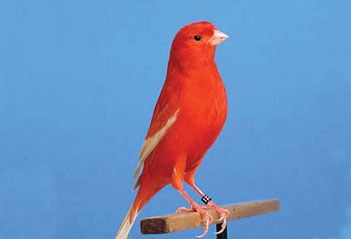
Domesticated, Coloured and Pet Canaries
Share
Feeding canaries is very much the same as all small seed-eating birds and over generations the champion breeders and showmen, particularly of the Type Canaries, have developed their own particular seed formulas, which they have relied upon to achieve their desired results.
Domesticated Canaries
Haith's have produced their well-proven seed mixes from the finest quality ingredients based upon these formulas and now offer a good selection of the most popular. However, feeding canaries is no different to any other bird in that they all have their specific nutritional requirements, which may vary throughout the year and depending on their state of health and well-being. So, feeding these little birds becomes an art for the specialist and many additives and supplements are on offer to cater for almost any condition.
A basic canary diet consists of a mixture of Canary Seed and Millets with other seeds introduced to provide variety and a broader spectrum of vitamins and minerals. At certain times of the year and depending upon the way they are housed; their diet must be changed to account for their specific needs.

The quantity of fats, carbohydrate, protein and minerals such as calcium and phosphorus all vary depending on the variety of seed, so we have the flexibility of offering different seed mixtures or seed supplements to help manage the bird’s condition. It should be obvious that birds in heated winter accommodation will require fewer fats than those kept in much colder conditions. And similarly, the demands on birds, which have greater flying space in aviaries, require more carbohydrates than those in cages.
These examples illustrate that when canaries are housed in aviaries, they can benefit by an addition of yellow millet to any of Haith's canary mixes to satisfy their greater energy demands. It must always be remembered that variety is essential and most seed-eating birds will consume some insect and green food along with the essential Grit and Cuttlefish bone.
Type or Posture Canaries The Type Canaries (or as they are known in mainland Europe, the Posture Canaries) are those domesticated canaries whose ancestors are the Wild Canaries (Serinus canaria) originating from the Canary Islands and Madeira. They have been selectively bred over hundreds of years to achieve a specific form or posture and are usually identified from their region of origin. Hence, we have names like the Yorkshire, Border, Gloucester, Norwich, Gibber Italicus, Dutch Frill, Japanese Hoso and many more. Exhibition Birds are more frequently housed and bred in cages, but some breeders allow their birds access to an aviary flight between the breeding and show seasons. Their nutritional requirements are much the same as all other canaries and can all be found in Haith's Canary Mixes; renowned for their success in the breeding of many National Show winners.
Coloured Canaries
Coloured Canaries should be fed a similar diet to the Type or Posture Canaries with the addition of 'colour foods' or 'colouring agents' but adding colouring agents can be a risky business as too much will undoubtedly give unwanted colouring effects.
Novices are recommended to use Haith's Ready-mixed Colour Food, as it is timesaving and trouble and risk-free but these are the very reasons why many champions use it as their standard mix. In the UK it is normal for Coloured Canary breeders to wait until the first moult before commencing colour feeding which results in many un-flighted types showing contrasting flight feathers. In Europe, breeders prefer to colour-feed small quantities throughout the year and even to fledging birds, claiming that a more intense plumage colour is achieved.

For best results colour feeding should begin before birds start to drop feathers, so allowing colour to pass into the blood stream prior to commencement of new feather growth.
Roller Canaries
Singing Canaries are judged on their song, not their appearance; yet they are not unattractive and do not lack the qualities of breeding apportioned to the Type Canaries. In continental Europe, the Singing Canaries are represented also by the Hartz and Timbrado and in the US by the American Singer. Their feeding requirements are slightly different from the Type Canaries and to cater for the special conditions under which Roller Canaries are kept and trained, To maintain birds in peak health, a supplementary feed of Condition Seed, Kraker Tonic Grains or Easisoak seed should be offered as necessary.
Pet Canaries:
Pet Canaries are usually those birds which do not match the standard set by competition judges either because they do not hold their pose correctly or they are adversely marked in some way. They are by no means inferior birds and have exactly the same requirements of care and feeding as their show-bird relatives.
Pet canaries are more usually housed in a conventional open-type wire cage and kept in the home where anyone can enjoy their song or colourful plumage and therefore there is little chance of them enduring cold conditions. For this reason, care must be taken not to allow pet birds to become too fat through incorrect feeding.




